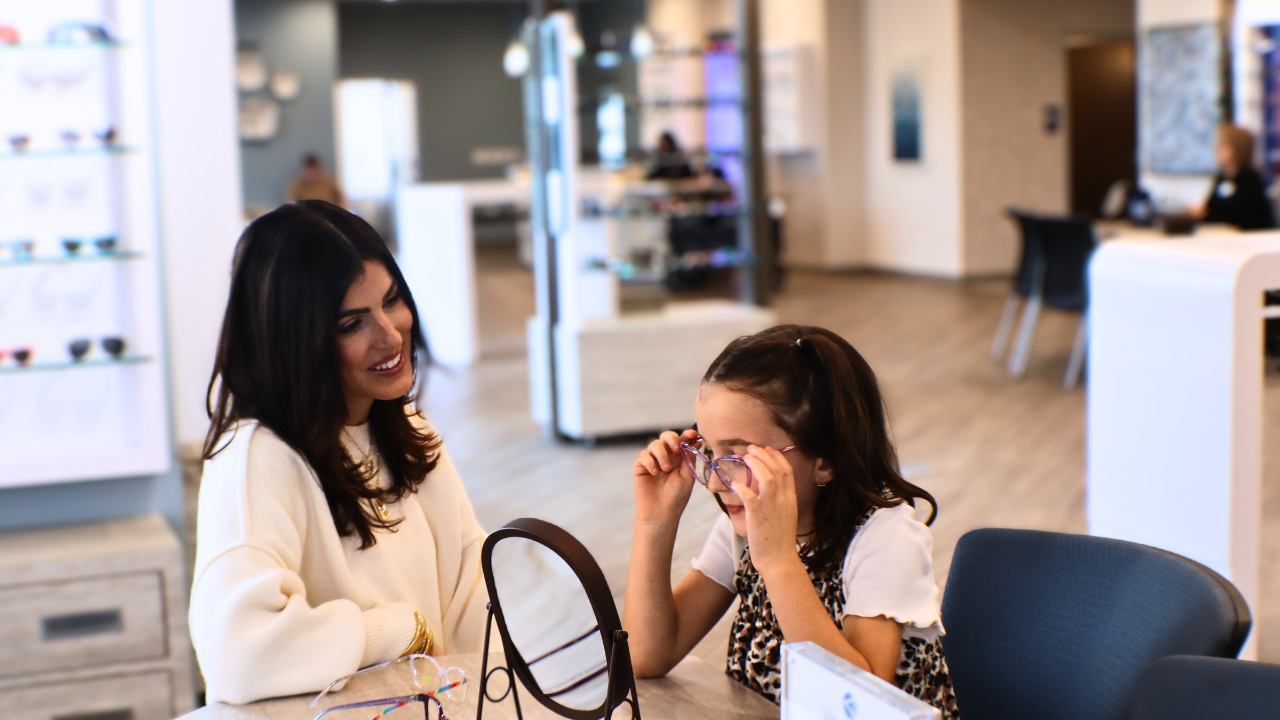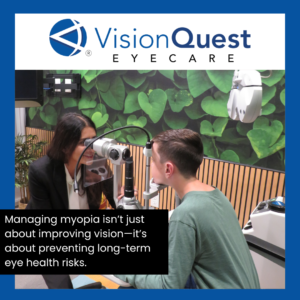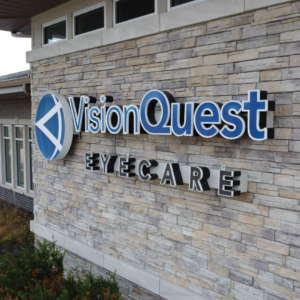Nearsightedness, or myopia, is one of the most common vision conditions in the U.S., affecting over 30% of the population. Among children, it is a growing concern, with an estimated 20-25 million experiencing myopia today.
If your child struggles to see distant objects clearly—like the whiteboard at school or road signs—it could be a sign of myopia. While glasses and contacts help correct vision, they don’t stop the condition from progressing. The good news is that VisionQuest Eyecare offers advanced treatments that can slow or even stop myopia from worsening.
What Causes Myopia?
Myopia develops when the eye grows too long from front to back, causing light to focus in front of the retina instead of directly on it. This results in blurry distance vision but clear up-close vision. Several factors contribute to its development, including genetics, excessive screen time, and a lack of outdoor activity. Children with one or both parents who are nearsighted are more likely to develop myopia. Increased use of digital devices and extended periods of reading or close work may also contribute to its progression. Additionally, studies suggest that children who spend less time outdoors have a higher risk of developing myopia.
Signs Your Child May Have Myopia
The most common symptom of nearsightedness is blurred vision at a distance, but other signs include frequent squinting, sitting too close to screens or books, complaints of headaches, and difficulty seeing clearly at night. Many children with myopia struggle in school because they cannot read the board from their desks. If your child is showing any of these signs, a comprehensive eye exam at VisionQuest Eyecare can determine if myopia management is necessary.
Why Controlling Myopia Progression is Important
Myopia often worsens over time, leading to stronger prescriptions and an increased risk of serious eye diseases later in life. High myopia has been linked to conditions such as glaucoma, retinal detachment, and early cataracts. Beyond health risks, untreated myopia can impact a child’s daily life by making school, sports, and other activities more challenging. Taking steps to manage myopia early can help protect your child’s long-term vision and overall eye health.
Advanced Myopia Treatments at VisionQuest Eyecare
VisionQuest Eyecare, in partnership with Treehouse Eyes, offers cutting-edge solutions to slow or stop myopia progression. Unlike traditional glasses, these treatments actively control eye growth to prevent worsening nearsightedness.
- Ortho K Lenses – Ortho-K lenses are custom-designed for each child and temporarily reshape their cornea. In addition to improving your child’s vision, Ortho-K lenses slow myopia’s progression and can be worn at night as they sleep for the utmost comfort.
- Soft Contact Lenses for Daytime Wear – These specialized lenses not only correct vision but are also designed to reduce myopia progression. They are a great option for active children who prefer not to wear glasses.
- Prescription Eye Drops (Atropine Therapy) – A simple nightly treatment that has been shown to slow down myopia growth. This option is ideal for younger children or those not ready for contact lenses. It can be used alone or in combination with other treatments.
At VisionQuest Eyecare, our doctors create customized treatment plans tailored to each child’s unique needs, ensuring the best approach to managing their myopia.
Tips for Supporting Healthy Vision at Home
There are steps parents can take to help manage myopia and promote better eye health. Encouraging outdoor play for at least 90 minutes per day has been shown to reduce myopia progression. Limiting screen time and ensuring regular breaks from near work can also relieve eye strain. The 20-20-20 rule—taking a 20-second break to look at something 20 feet away every 20 minutes—can be helpful for children who spend a lot of time on screens. A diet rich in vitamins C, E, and Omega-3s supports overall eye health and can contribute to better long-term vision. Finally, ensuring that children wear their prescribed glasses or contacts correctly is essential in preventing further strain on the eyes.
Annual Eye Exams Are Key
Because myopia progresses quickly in children, annual comprehensive eye exams are essential for detecting early changes in vision, monitoring myopia progression, and adjusting treatment as needed. VisionQuest Eyecare provides state-of-the-art diagnostic tools to track myopia changes and offer the most effective solutions.
Schedule a Myopia Consultation at VisionQuest Eyecare
If your child is struggling with blurry distance vision, early intervention is crucial. At VisionQuest Eyecare, we specialize in myopia management and partner with Treehouse Eyes to offer the latest treatment advancements. Book your appointment today to learn how we can help protect your child’s vision for the future.

Dr. Chris Browning is a Greenwood native, who has been serving the community through glaucoma care and myopia management. He studied at Indiana University Bloomington and the Indiana University School of Optometry. As he has severe nearsightedness himself, Dr. Browning is passionate about helping others to achieve excellent vision.



